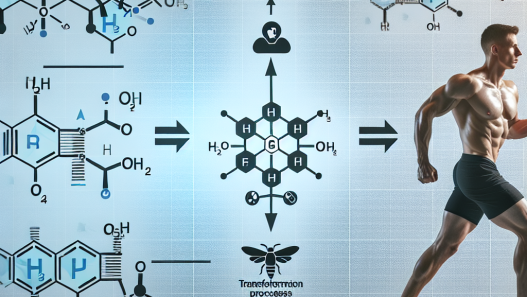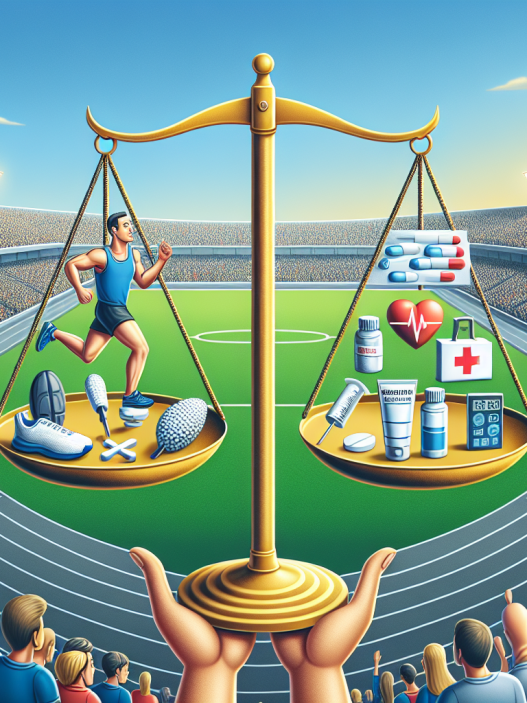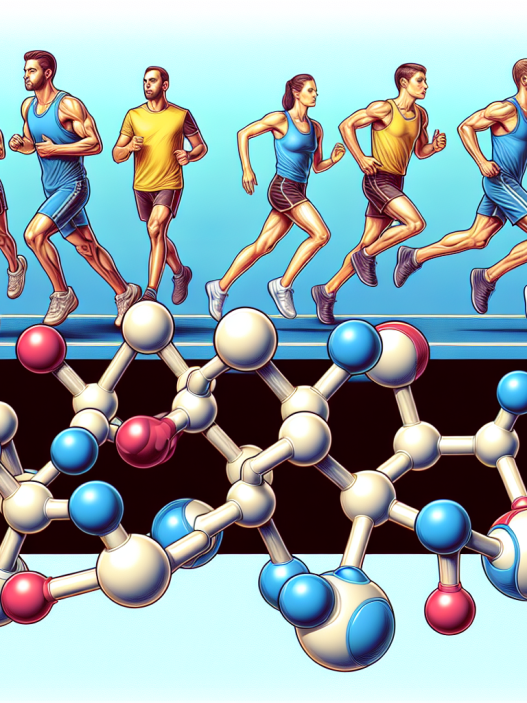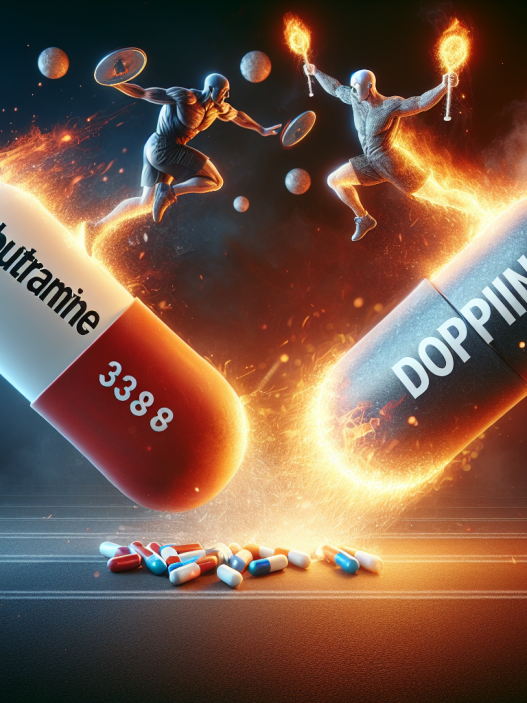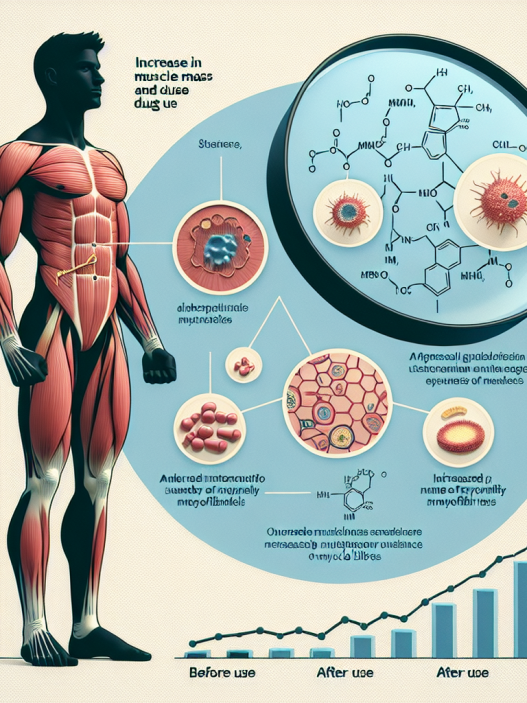-
Table of Contents
- Positive Effects of Semaglutide in Sports: A Literature Review
- What is Semaglutide?
- Semaglutide and Sports Performance
- Improved Glucose Metabolism
- Increased Energy Expenditure
- Promotes Weight Loss
- Pharmacokinetics and Pharmacodynamics of Semaglutide
- Real-World Examples
- Expert Opinion
- Conclusion
- References
Positive Effects of Semaglutide in Sports: A Literature Review
Sports performance and nutrition have always been closely intertwined, with athletes constantly seeking ways to improve their physical abilities and achieve peak performance. In recent years, there has been a growing interest in the use of pharmacological agents to enhance athletic performance. One such agent that has gained attention is semaglutide, a glucagon-like peptide-1 (GLP-1) receptor agonist commonly used in the treatment of type 2 diabetes. This article aims to review the current literature on the positive effects of semaglutide in sports and its potential as a performance-enhancing drug.
What is Semaglutide?
Semaglutide is a synthetic version of the naturally occurring hormone GLP-1, which is released by the gut in response to food intake. It works by stimulating insulin secretion, suppressing glucagon release, and slowing gastric emptying, resulting in improved blood glucose control in individuals with type 2 diabetes (Aroda et al. 2018). In addition to its glucose-lowering effects, semaglutide has also been shown to have beneficial effects on weight loss and cardiovascular health (Marso et al. 2016).
Semaglutide and Sports Performance
While semaglutide was initially developed for the treatment of diabetes, its potential as a performance-enhancing drug has been a topic of interest in the sports community. This is due to its ability to improve glucose metabolism, increase energy expenditure, and promote weight loss, all of which are desirable effects for athletes looking to improve their performance.
Improved Glucose Metabolism
One of the key mechanisms of action of semaglutide is its ability to stimulate insulin secretion, which leads to improved glucose uptake by muscle cells. This can be particularly beneficial for endurance athletes, as it allows for better utilization of glucose as a source of energy during prolonged exercise (Knudsen et al. 2019). In a study by Knudsen et al. (2019), it was found that semaglutide improved glucose tolerance and increased insulin sensitivity in individuals with type 2 diabetes, which could potentially translate to improved athletic performance.
Increased Energy Expenditure
Semaglutide has also been shown to increase energy expenditure, which is the amount of energy the body uses to perform physical activities. This is achieved through its ability to suppress appetite and increase satiety, leading to a decrease in food intake and subsequent weight loss (Marso et al. 2016). In a study by Marso et al. (2016), it was found that semaglutide led to a significant reduction in body weight and body fat percentage in individuals with obesity. This could be beneficial for athletes looking to improve their power-to-weight ratio and overall performance.
Promotes Weight Loss
Weight management is a crucial aspect of sports performance, with many athletes striving to maintain a lean physique. Semaglutide has been shown to promote weight loss through its effects on appetite suppression and increased energy expenditure, making it an attractive option for athletes looking to shed excess body fat (Aroda et al. 2018). In a study by Aroda et al. (2018), it was found that semaglutide led to a mean weight loss of 13.8% in individuals with obesity, which could have significant implications for athletic performance.
Pharmacokinetics and Pharmacodynamics of Semaglutide
In order to fully understand the potential of semaglutide as a performance-enhancing drug, it is important to examine its pharmacokinetic and pharmacodynamic properties. Semaglutide has a half-life of approximately 7 days, which means it remains active in the body for an extended period of time (Aroda et al. 2018). This is beneficial for athletes as it allows for once-weekly dosing, reducing the burden of frequent injections.
Furthermore, semaglutide has a low potential for drug interactions, making it a safe option for athletes who may be taking other medications. It is also well-tolerated, with the most common side effects being mild gastrointestinal symptoms such as nausea and diarrhea (Marso et al. 2016). These side effects are typically transient and resolve with continued use of the drug.
Real-World Examples
While there is limited research on the use of semaglutide in sports, there have been some notable real-world examples of its potential as a performance-enhancing drug. In 2019, professional cyclist Chris Froome was reported to have used semaglutide as part of his recovery from a serious injury (BBC Sport 2019). Froome’s team doctor stated that the drug was used to help him maintain his weight and improve his glucose metabolism, which are crucial factors in his sport.
In addition, there have been reports of other athletes, particularly in endurance sports, using semaglutide to improve their performance. While these reports are anecdotal and not supported by scientific evidence, they do highlight the potential of semaglutide as a performance-enhancing drug in the sports world.
Expert Opinion
Experts in the field of sports pharmacology have weighed in on the potential of semaglutide as a performance-enhancing drug. Dr. Don Catlin, a renowned sports doping expert, stated in an interview with the New York Times that semaglutide could be a game-changer in the world of sports (Kaplan 2019). He believes that the drug’s ability to improve glucose metabolism and promote weight loss could give athletes a significant advantage in their performance.
Dr. Catlin also highlighted the need for further research on the use of semaglutide in sports, stating that “we need to know more about the effects of this drug on athletic performance and whether it can be used safely and ethically in sports.” This sentiment is echoed by other experts in the field, who believe that more studies are needed to fully understand the potential of semaglutide as a performance-enhancing drug.
Conclusion
In conclusion, the current literature suggests that semaglutide has the potential to enhance sports performance through its effects on glucose metabolism, energy expenditure, and weight loss. However, more research is needed to fully understand the drug’s effects on athletic performance and its safety and ethical implications in sports. As with any pharmacological agent, the use of semaglutide in sports should be carefully monitored and regulated to ensure fair competition and the well-being of athletes.
References
Aroda, V. R., et al. (2018). “Efficacy, safety, and tolerability of oral semaglutide versus placebo added to insulin with or without metformin in patients with type 2 diabetes: the PIONEER 8 trial.” Diabetes Care 41(9): 1926-



